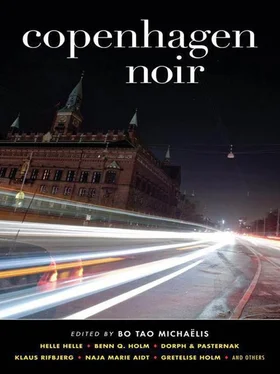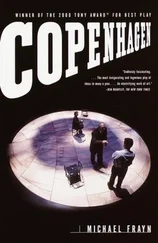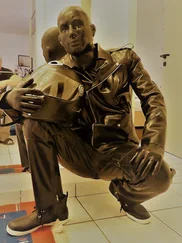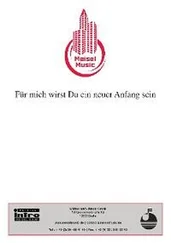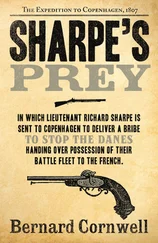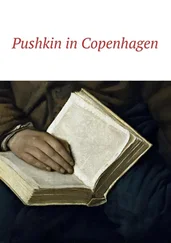“It’s like this,” Bruiser says. “The police won’t believe you if you tell them I did the forgeries.”
“They’ll figure it out soon enough. They have fingerprint and handwriting experts.”
The decisive words have now been spoken by Sleipner. Bruiser is silent. He resembles a masculine version of the goddess of revenge as he pulls out forty-nine thousand kroner. He slides them and the previously shown thousand-kroner note over to Sleipner, who slips them into his inside pocket and stands up.
“You’ll bring them to me now,” Bruiser says. His tone is menacing.
“If I’m not delayed or find something better to do,” Sleipner says, and leaves.
Outside, Sleipner makes sure he is not being followed, then walks to a supermarket and goes to customer service to request the return of a full grocery sack that earlier in the day he dropped off for safekeeping. He is given the sack, which contains groceries and mortgages.
Sitting on a park bench, he pulls out the mortgages. Later he walks into a post office and mails a thin envelope with fifty thousand kroner to an address in Jutland.
He walks back to his table, where Bruiser sits with four empty and one half-full whiskey glasses and waits for him.
“There,” Sleipner says, and lays thirty-one mortgages on the table.
Bruiser counts them. “There’s one mortgage missing,” he says. He speaks slowly, almost lifelessly, yet with a threatening undertone, as if he is the quiet before the storm.
“Of course. Naturally, I’ve kept one,” Sleipner says. “Otherwise I’d be walking around scared that you’ll take revenge on me. That won’t happen, now that you understand-I’m telling you now, anyway-that should anything bad happen to me, one of my friends you don’t know and never will know will send the final mortgage to the police, with the message that you forged it. I can send it to the police myself, if I think you’re beginning to act naughty.”
Bruiser can’t believe his ears. Then he thinks it’s too crazy to really be true. Not until later does he realize the battle is lost.
Sleipner and Bruiser never again sit at the same table. It seems as if they both prefer the company of others, should they desire company.
But when Sleipner and Bruiser run into each other-something that cannot always be avoided, being part of the same crowd-Bruiser is always quite friendly, in fact very polite.
And that is worth taking note of. Politeness, you don’t see much of that in their crowd.
DEBT OF HONOR
by Klaus Rifbjerg
Amager
The wind drove the rain in over the market’s flat roof in gusts, and the sidewalk from Elbagade to Parmagade floated. The streetlights still retained some of their half-blind poverty from during the war, though by now it had been several years since the last Prussian had dragged his boots and himself southward. But maybe it was just his imagination, maybe it was just his inner light, turned down so low that it resembled a pilot light. Maybe that was it, that he, Aage Baldersen, was on pilot light.
He pulled up his coat collar and felt its clammy chill against his neck hair. Despite the blackouts and everything else, there had been more action during what some called the evil years, but what he thought of as the good years. There had been lots to do, and while most felt something was left missing when the police were nabbed on September 19, 1944, and sent to Germany, others-he included-felt a certain relief. Not because he was a German sympathizer, but no one would deny that it had taken a certain amount of pressure off the underworld when the law had been removed in one fell swoop and later replaced by the so-called Vagtværn, the private guard whose effectiveness in relation to the police was on the scale of a teaspoon to an excavation crane.
Someone had thrown a few snipped-up Christmas trees on the bare ground by the depot. Their limbs shook hysterically in the wind gusts and were mirrored in the large puddles formed by the rain. Disgruntled, Aage Baldersen blew out through his nose. Right now there was only mud and slush, but occasionally during the summer a circus slapped its tents up on the lot, and once, having nothing to do that day, he’d been stupid enough to buy a ticket for a show that should have had to pay its audience, that’s how bad it was. One of the clowns was an obese former half of a comedy duo who’d had some success in film. Now he looked like a worn-out punching bag and was just as funny as one.
Parmagade stretched out before him into the horizon. The blocks towered up on both sides of the street, and the vanishing point was anybody’s guess in the drizzly mist. But Baldersen knew very well what was hidden out east; back when the five-room apartment had a porcelain washbasin (women painted on it) and real booze and wasn’t a dump like now, he had bicycled the route many times, past the hospital and along Italiensvej and down to the beach and public baths that had proven to be a convenient meeting place when the bosses decided how the work should be divided. Nobody was going to frisk someone in their birthday suit!
Those days had been great in a lot of ways, and he didn’t even have to close his eyes to picture them. There had been a shortage of everything, but if you could get hold of a product in short supply it could be sold at a high price. Actually, he was very proud that he’d been part of what had to be called a major economy. True, it had developed underground, even though the retailing was done out in the open. But in front of the Lido by the Liberty Memorial and on Suhmsgade, it had naturally been only small stuff: single cigarettes, butter and sugar ration coupons, some 60 percent soap, and bike tubes with no holes. Baldersen’s level was more wholesale, but it made him happy anyway to see all the activity when he occasionally-and mostly for pleasure-inspected the troops.
He blew rainwater out between his lips and stepped into the hallway, where a weak, sour odor met him. The place needed painting, and there wasn’t much varnish left on the steps. While hauling himself slowly upstairs he felt the moisture that had seeped through the soles of his shoes.
Naturally, Aage Baldersen had understood that things wouldn’t be the same after the Liberation, but the first few years went very well. People still lacked everything that made life a bit more fun; the promised boatloads of bananas arrived a lot later than most had expected. But now he’d hit bottom, and while others saw light ahead, he stared into a growing darkness. And that’s really what surprised him the most: he’d lost his zing. It was as if all the fun had gone out of life. Once he’d been cheerful and energetic, now he was mostly surly, if not depressed.
Deep inside he knew what it was about: a lack of excitement. If he wanted he could get work-honest work-but he didn’t seem to have it in him, his slide had been too severe, and when it was all said and done, he had been the one left holding the bag. They bought him out with cash, and he’d been dumb enough to take it (who says no to a truckload of C-notes?), but when the paper money exchange came after the war, he was sunk-there was no way he could explain where all that money came from. He was so depressed that he couldn’t even enjoy the flames when all the bundles ended up in the furnace.
And this is where he’d ended up. Aage Baldersen opened the door to his apartment-room-that you walked directly into because it had no entryway, with the bathroom out in the hall. His shoes had dried enough from the climb up to the fifth floor that they left only small tracks on the floorboards when he walked in, yet he didn’t know what to do with his coat. He stood undecided for a moment, then he unbuttoned it and let it fall to the floor in a wet heap. He was soaked from the knees down.
Читать дальше
